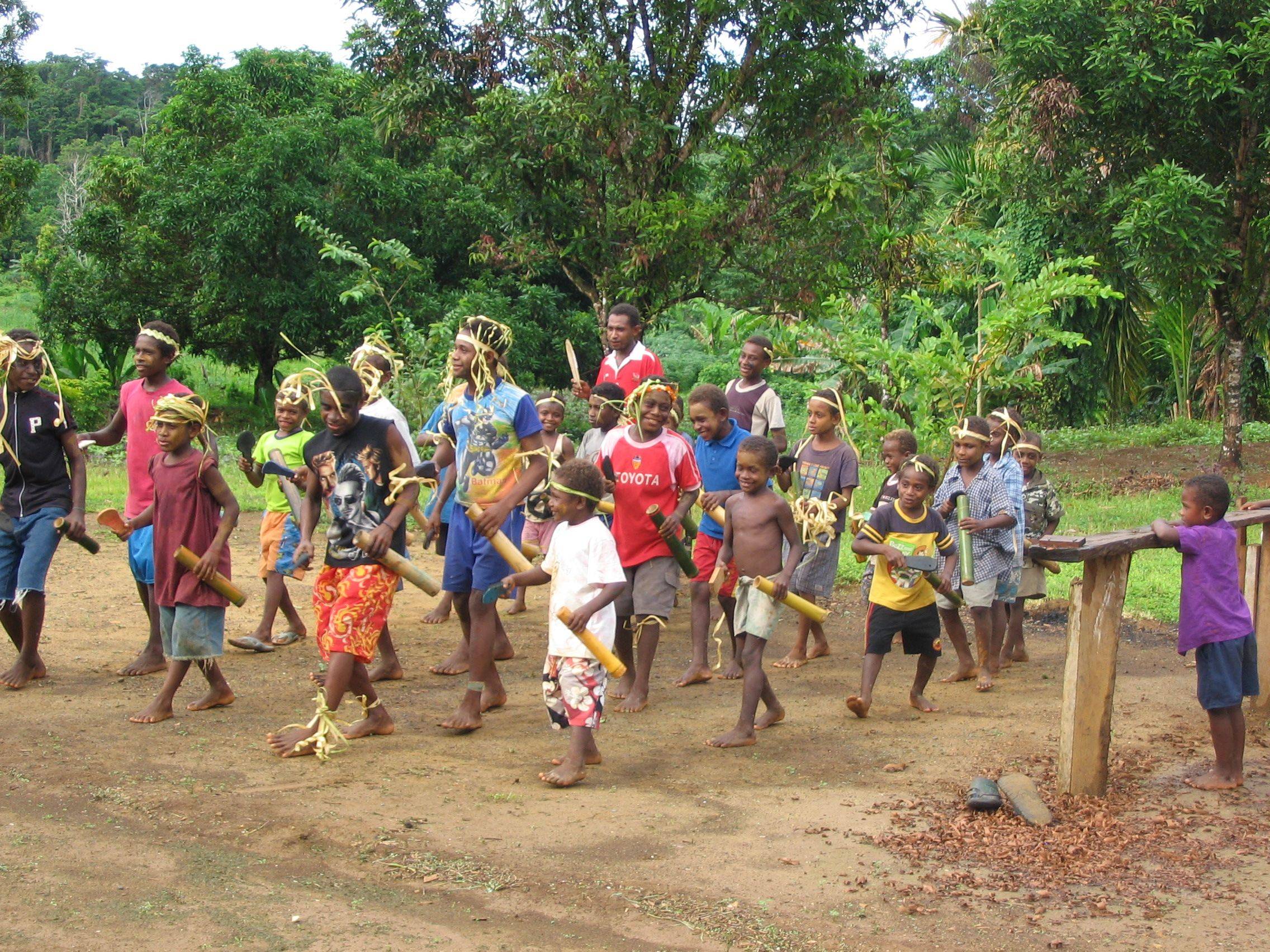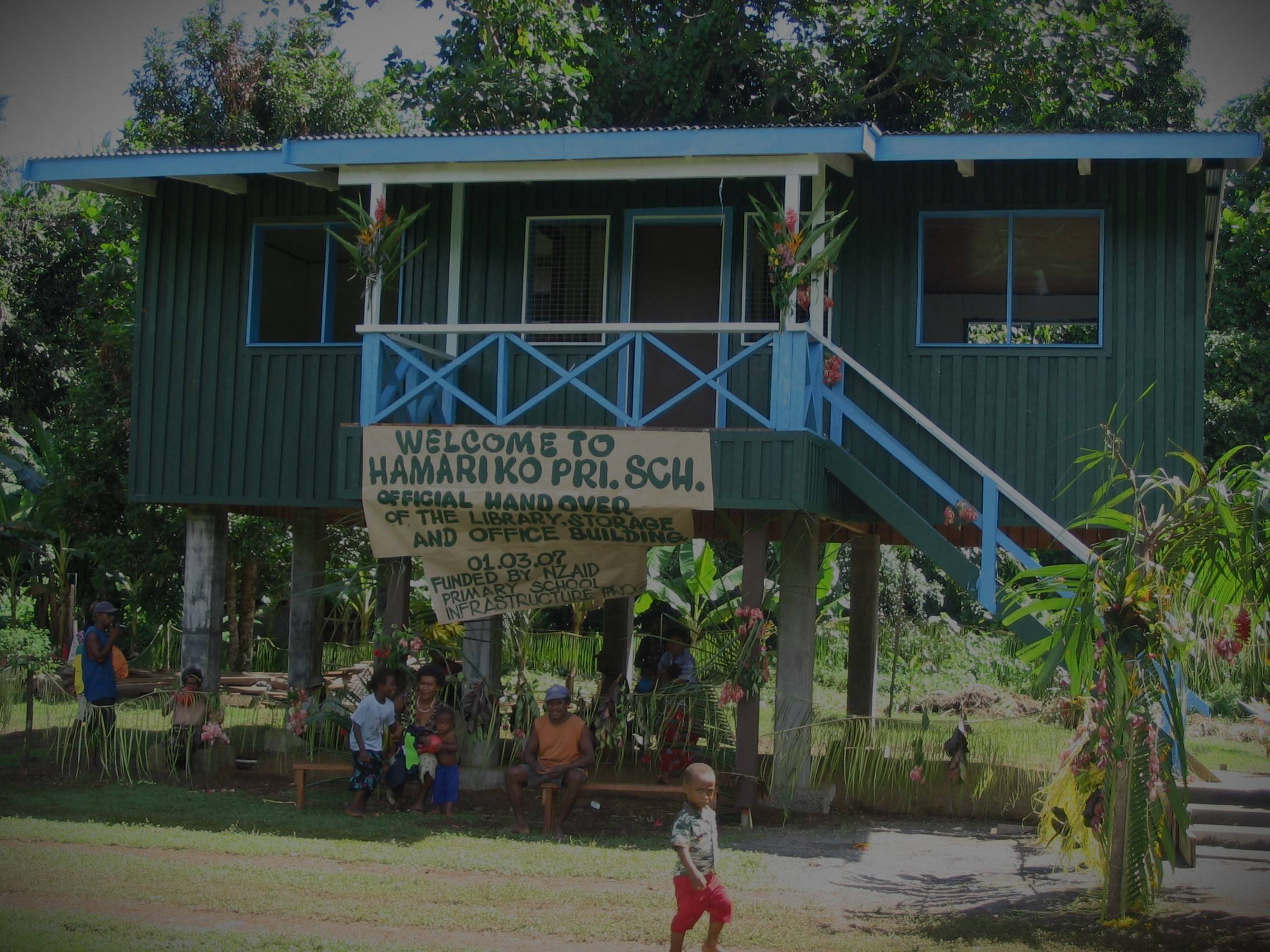
A Pathway to Peace
Solomon Islands Education
It was a time in Solomon Islands that is now simply referred to as “The Tensions”.
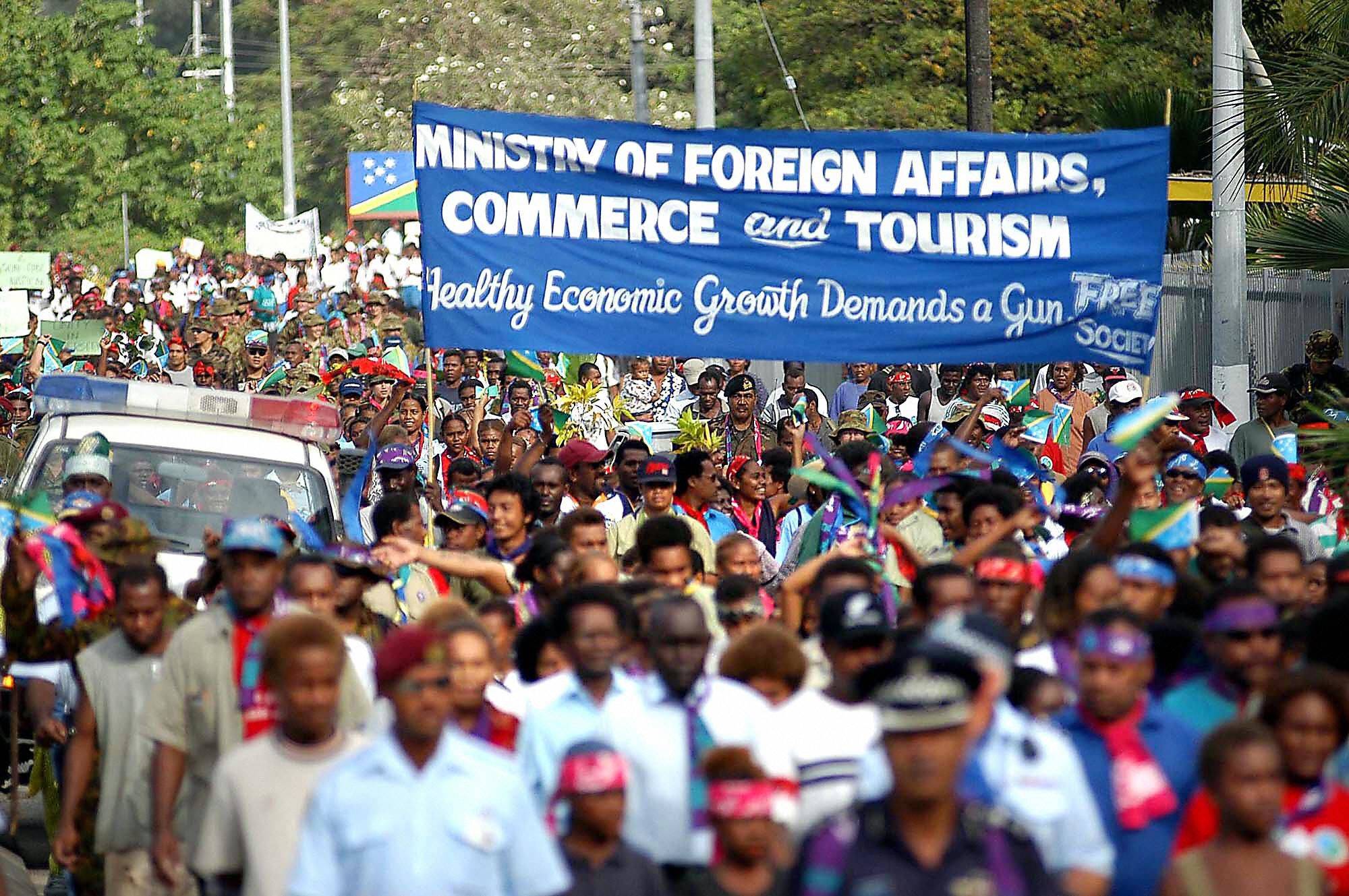
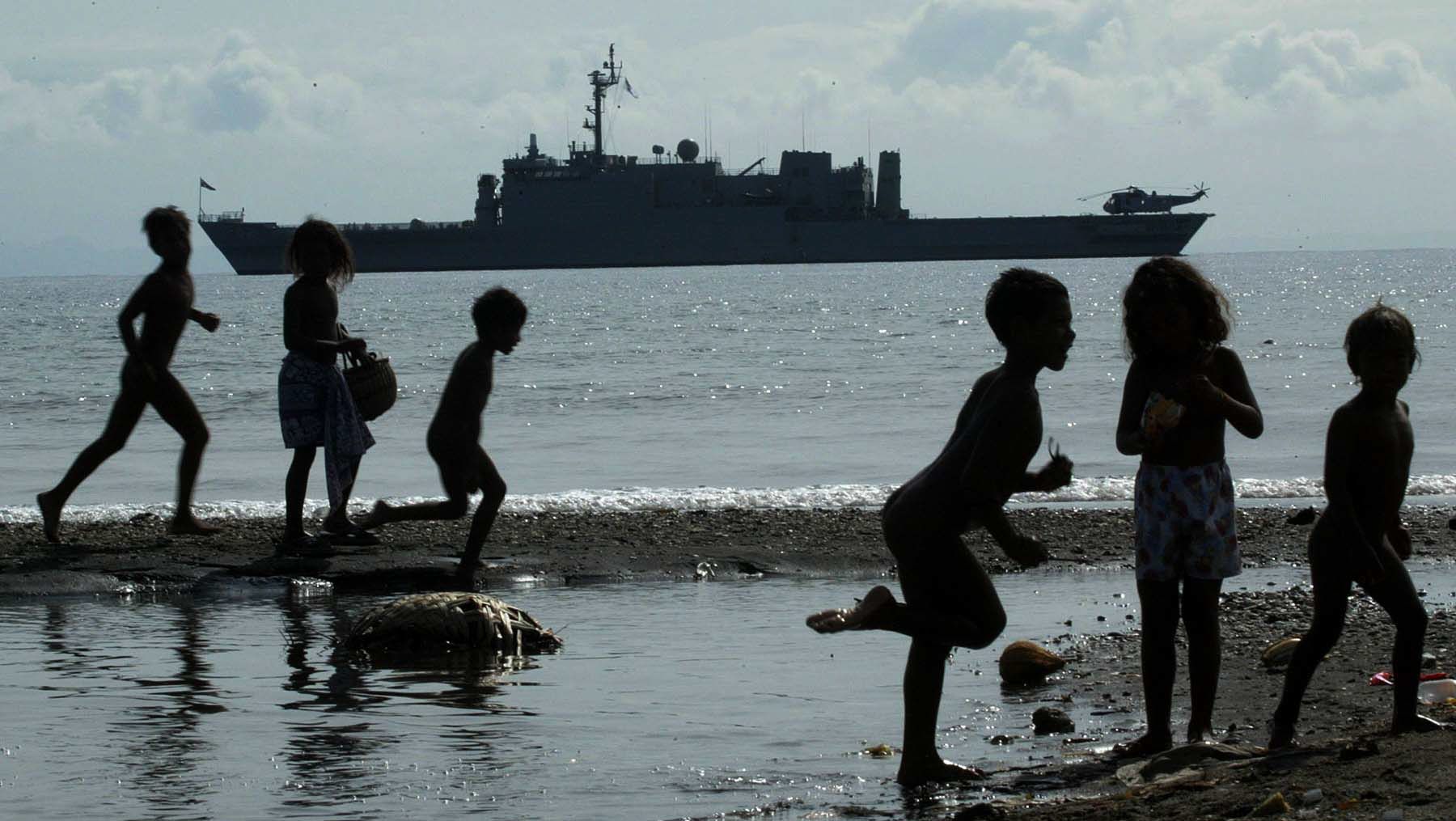
Law and order had broken down, and violence created a climate of fear and distrust. The economy had collapsed, and the government had lost the ability to collect revenue and pay its public servants. Government services ground to a halt: schools were closed, hospitals ran on skeleton staff, and the police were in disarray. Concerns for the welfare and safety of their staff led a number of development agencies that normally operated in Solomon Islands to suspend their activities.
Brenda Laurii remembers the period of civil conflict, which stretched from 1998 to 2003, as a time where no one was safe.
“Some people still have the trauma from that time,” she says.
In 2003, Solomon Islands Government reached out to Australia and New Zealand for urgent assistance. In response, the Regional Assistance Mission to Solomon Islands (RAMSI), comprising military, police and other specialists from across a range of Pacific nations, was formed. Its purpose was to support Solomon Islands Government to restore law and order, and put the country on a path to economic stability.
New Zealand made a significant contribution to RAMSI, with our military, police and other specialists working alongside counterparts from Pacific countries to assist Solomon Islands’ efforts to rebuild peace and stability. Along the way it became clear that one of the most powerful ways to heal the wounds of the Tensions and begin to unify the country – and one of the areas in which New Zealand was best placed to contribute - was in the education of young Solomon Islanders.
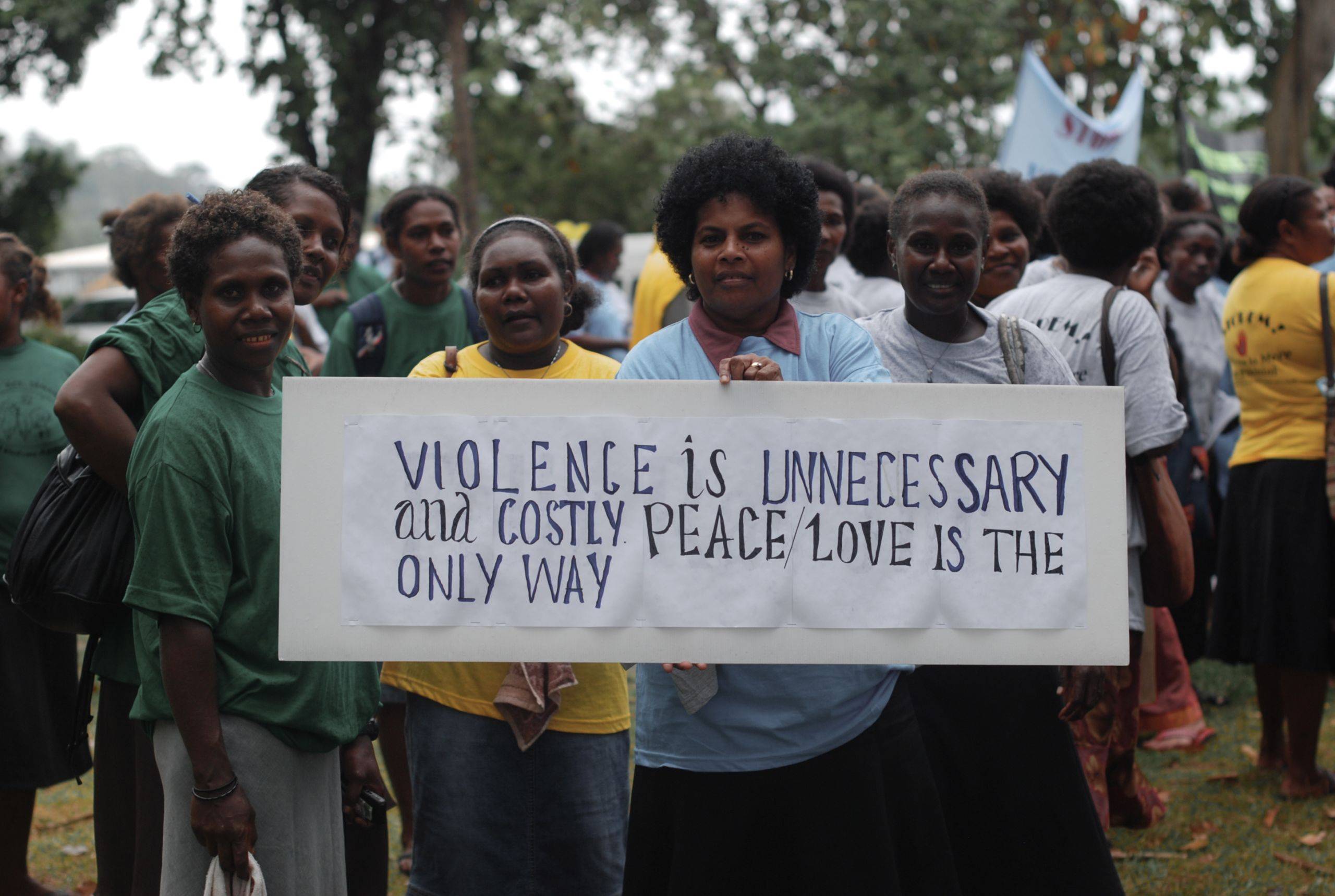
A system under strain
During the Tensions, Solomon Islands Government tried to keep schools open to maintain a sense of normality and keep young people out of the conflict. Unfortunately, the Ministry of Education and Human Resources Development was under extreme financial pressure, and unable to pay teachers and provide a safe environment for students. Participation rates at all levels of education were among the lowest in the Pacific, with girls’ participation particularly low. For many isolated communities, even if they weren’t directly affected by the conflict, their access to even basic education services was effectively cut off and a generation was in danger of being left without schooling.
Education was one of the only government services at the time that affected almost every household throughout Solomon Islands.
New Zealand understood that restoring and improving such a widespread, essential service was key to growing peace, unity, and confidence in the government, and vital for long term economic growth.
To achieve this, the change had to be led by Solomon Islands’ Ministry of Education and be seen to be driven by Solomon Islands Government itself, not by another country. New Zealand determined that the best way to achieve this was by funding Solomon Islands education ministry directly and working through their systems. This approach reinforced that this was a genuine partnership and opened the door for New Zealand to deploy its knowledge and experience to help address systemic, sector-wide issues.
The Solomon Islands Government had the ambitious goal of free basic education for every student. It knew that this required taking big steps and was willing to be held accountable for getting the sector back on track.
In 2004 the New Zealand Cabinet approved $30 million for education in Solomon Islands. It was the single largest overseas development contribution that New Zealand had ever made to a sector in a country. It established New Zealand as a lead partner country for education in Solomon Islands – a role that we still have today.
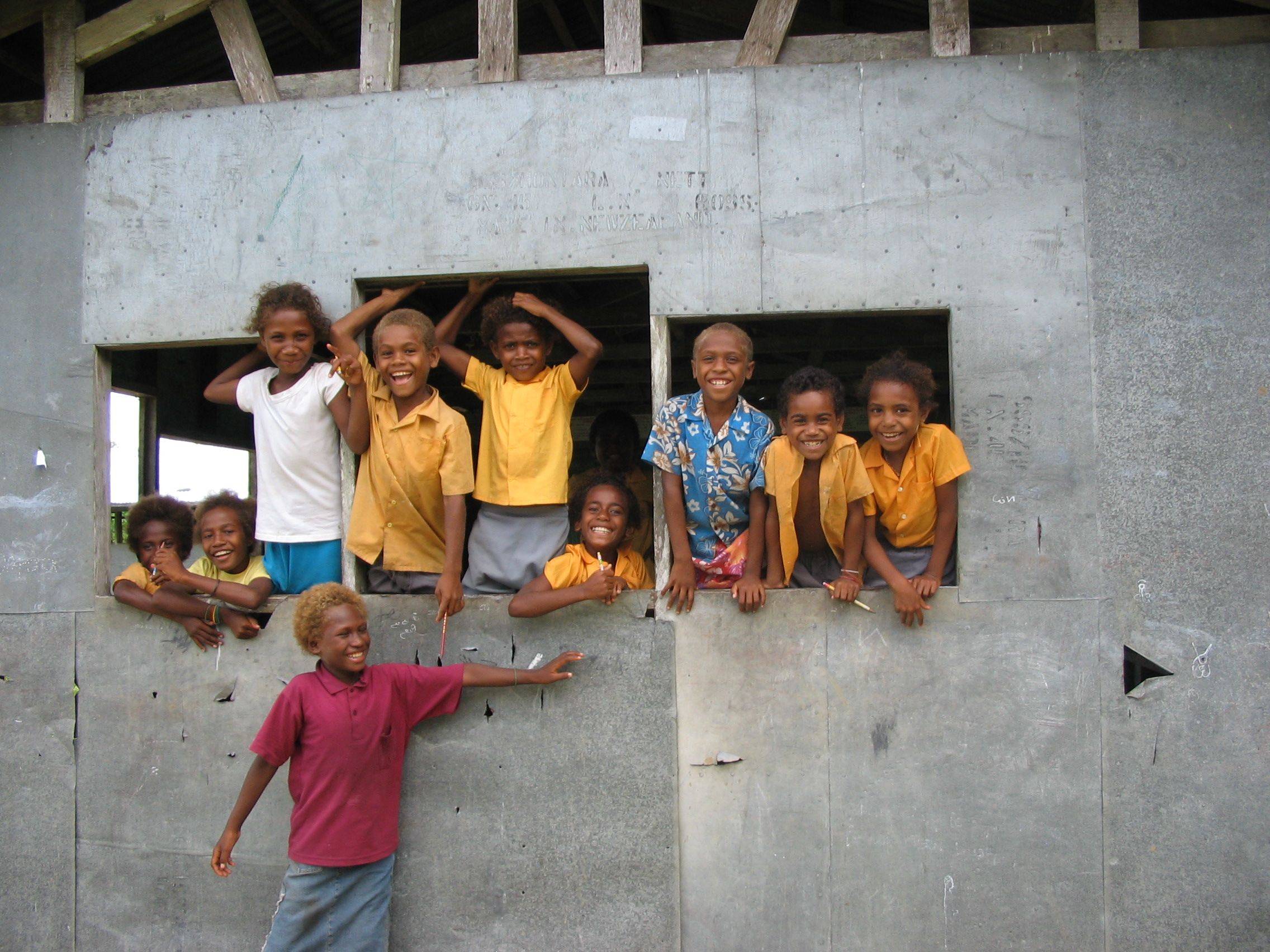
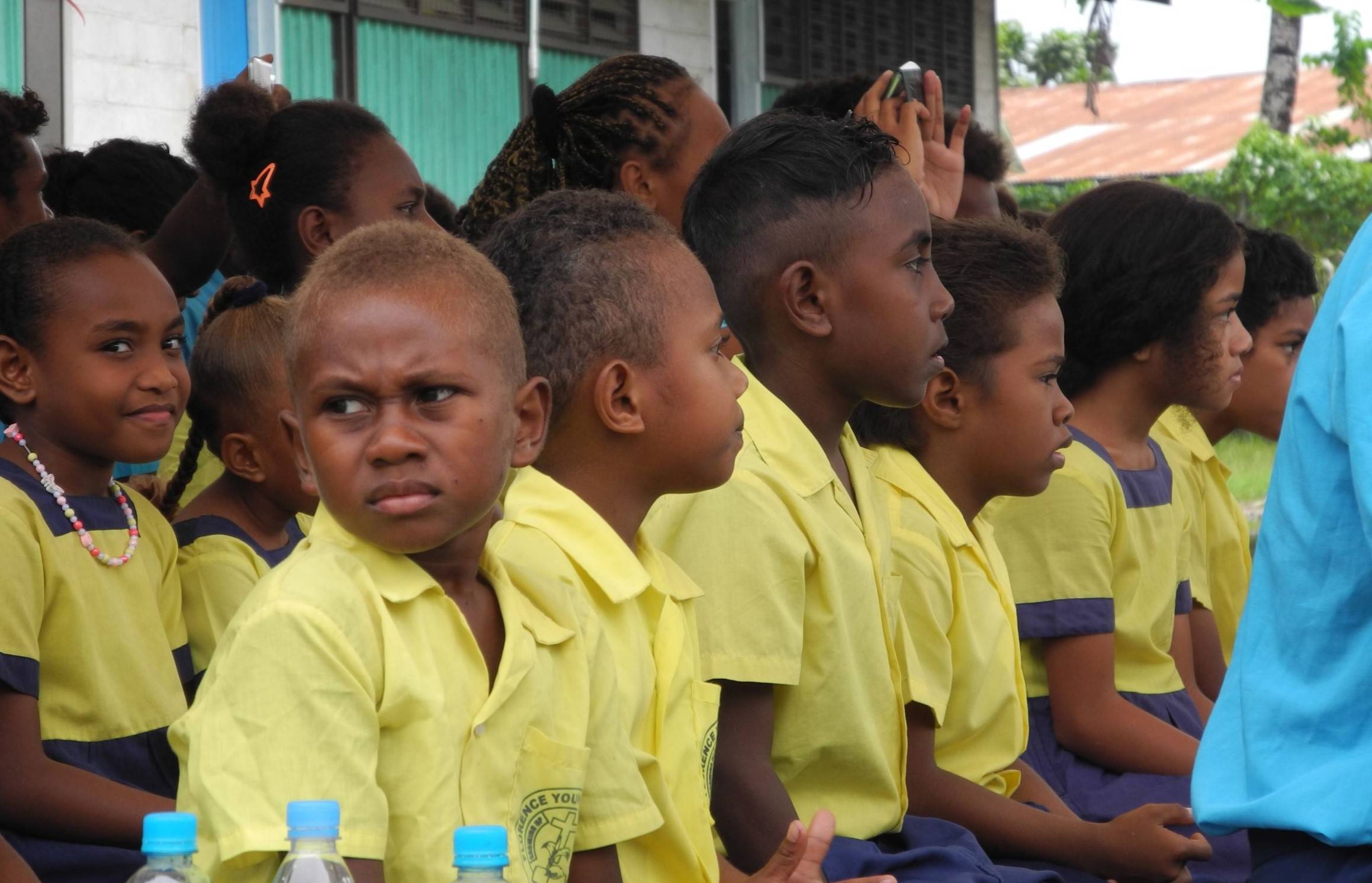
Risk is not a reason for inaction
Injecting money into the government systems of a country emerging from instability and economic failure comes with obvious challenges. With RAMSI, a new framework to manage and monitor public expenditure was in place. Australian treasury officials were working with their Solomon Islands counterparts.
But corruption posed a real risk for New Zealand – both operationally and to its reputation. Together, New Zealand, Solomon Islands Government and RAMSI officials closely monitored funds. In the first years, joint reviews took place every three months and school visits were frequent. Public expenditure tracked budgets right down to the school level.
The biggest need was cleaning up the payroll system, which included ‘ghost teachers’, who were being paid but weren’t working. In some cases, these came about through genuine oversight, but in others it was people taking advantage of the system.
More teachers were hired, trained and had their salaries funded. Locally relevant text books were developed, printed and distributed. Classrooms were rebuilt and upgraded. Media attention in Solomon Islands was positive, which helped build local confidence in the government.
Importantly, it has also contributed to lasting improvement in the sector. More than 2,000 teachers have been trained, lifting their quality and professionalism. Today, rates of literacy and numeracy in Solomon Islands are up 30 percent on when New Zealand support started. School attendance is up, with equal numbers of boys and girls attending.
Education continues to be a major focus for New Zealand development cooperation with Solomon Islands. Together we are committed to addressing challenges and finding the potential of Solomon Islands children and young people as a part of the country’s journey to stability and prosperity.
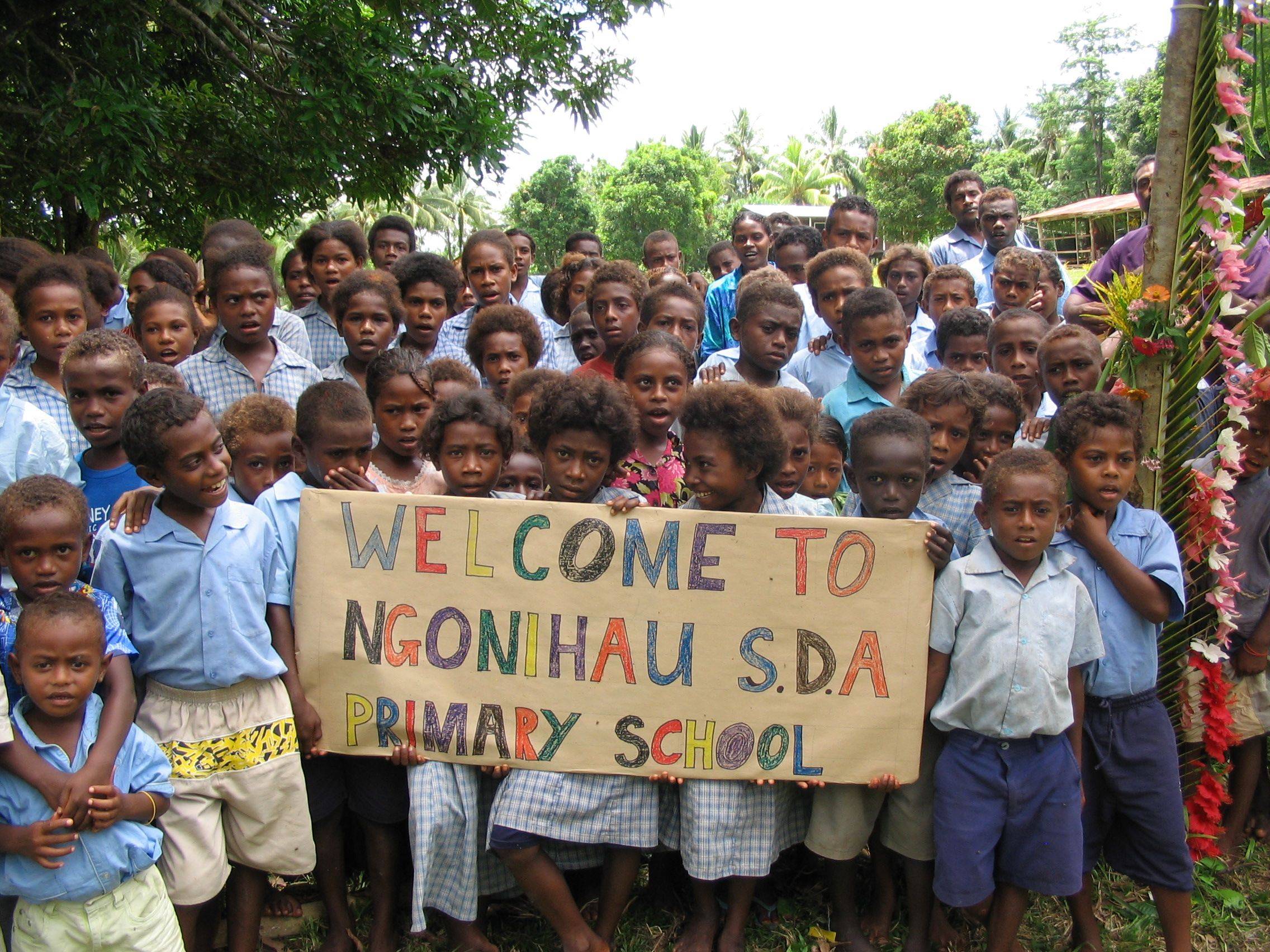
Building leaders, communities, countries
Along with basic education, New Zealand also fosters the development of emerging leaders with New Zealand Scholarships. Each year, around 550 scholars from developing countries study at tertiary institutions in New Zealand.
In 2019, 24 Solomon Islands scholars were awarded scholarships to study in New Zealand. Among them are Florence Pauku, who is studying a Bachelor of Science in chemistry; and Brenda Laurii, who is studying a post-graduate Diploma in Medical Laboratory Science. Both are at the Auckland University of Technology (AUT).
Brenda remembers the period of civil conflict. “[The Tensions] disrupted the community, in Honiara especially. Most of the schools were closed. It wasn’t safe … some people still have the trauma from that time. But I think now we are getting back on our feet as a country.”
She sees the efforts of Solomon Islands Government supported by New Zealand to improve access to and quality of education as important for the ongoing peace of Solomon Islands. “I think most of the unrest, and the behaviour happening in the country that was unacceptable, was because youth were not educated. When I was growing up, education was not free. Also, it was not compulsory for kids to go to school. When you have lots of educated young people, they could actually manage the country properly.
For both scholars, coming to New Zealand has taken some adjustment. “The learning environment is so different,” Florence says. This includes resources, access to technology and information, but also different ways of learning and interacting. Brenda mentions the opportunity to explore, and Florence mentions calling lecturers by their first name and interrupting to ask questions as surprising aspects of their study in New Zealand.
But in those differences lie opportunity
Scholars are awarded scholarships in part for their potential to create positive change when they return home. This ambition is evident in both Brenda and Florence’s choices and plans.
Brenda says she chose to study in the medical field to give back to her country and her people.
“Having the knowledge and the skills with the different technologies that you can tap into to increase your work performance and the tests that we can do – that’s an advantage of getting this scholarship.
“Especially, going back to improve our work settings and maybe help develop the health services that we can provide to our people.”
For Florence, it was also about broadening her horizons.
Getting a scholarship and coming here, it’s not just about learning chemistry, it’s also about learning how people do things differently, and how life is outside the Solomons.
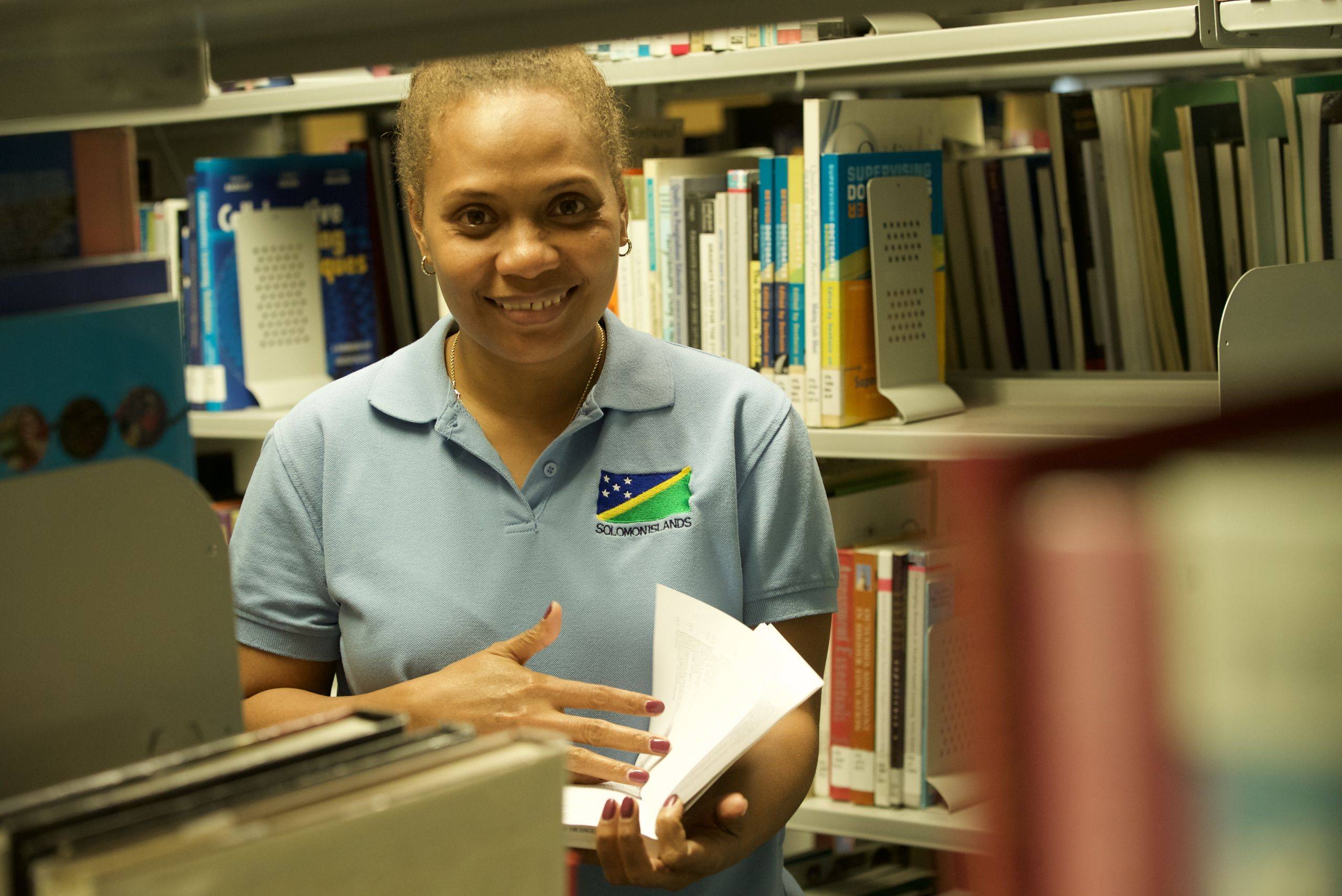
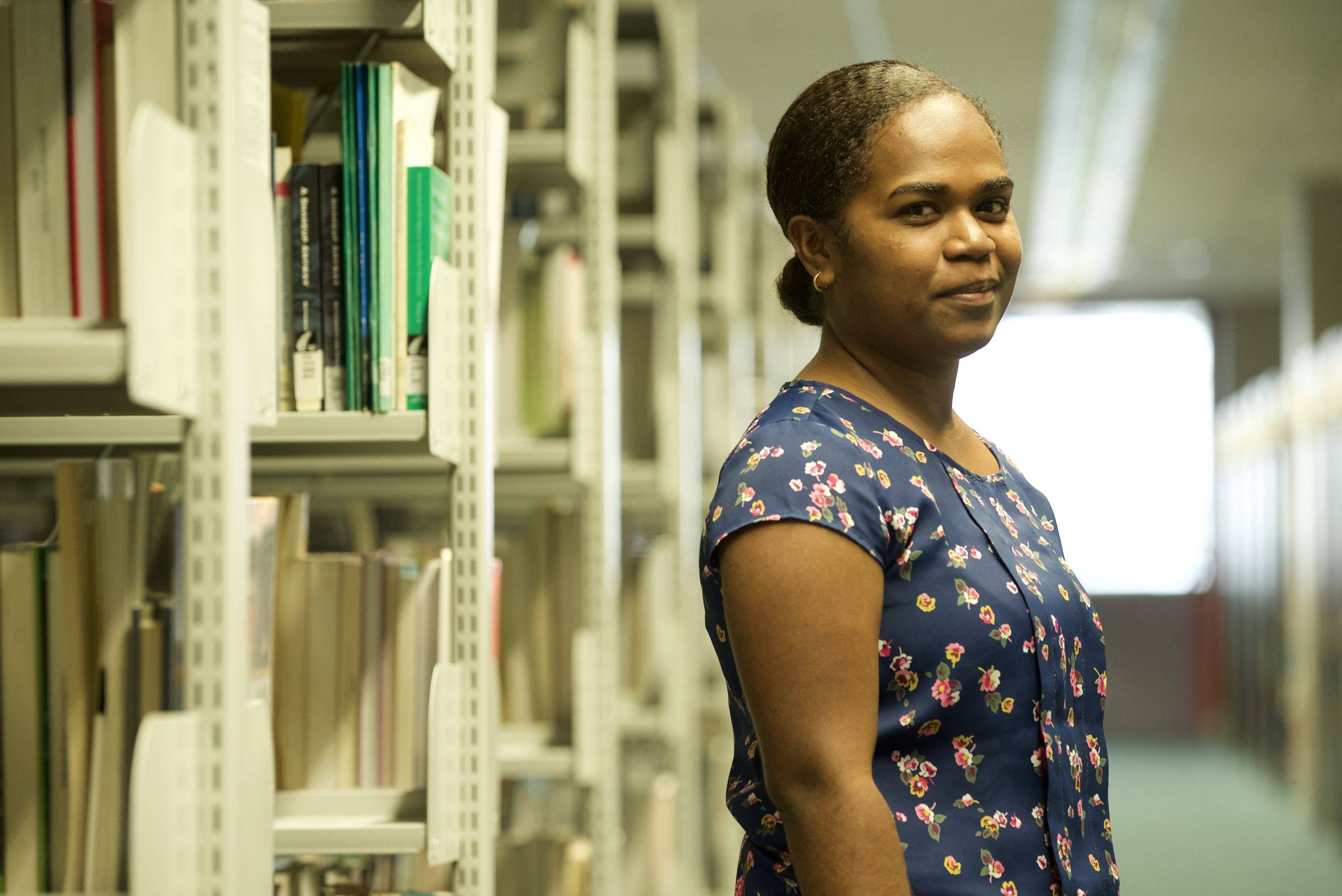

"I’m hoping that I will gain a lot of experience, knowledge and skills here and go back to the Solomons and help people in whatever ways I can.”
Florence Pauku
